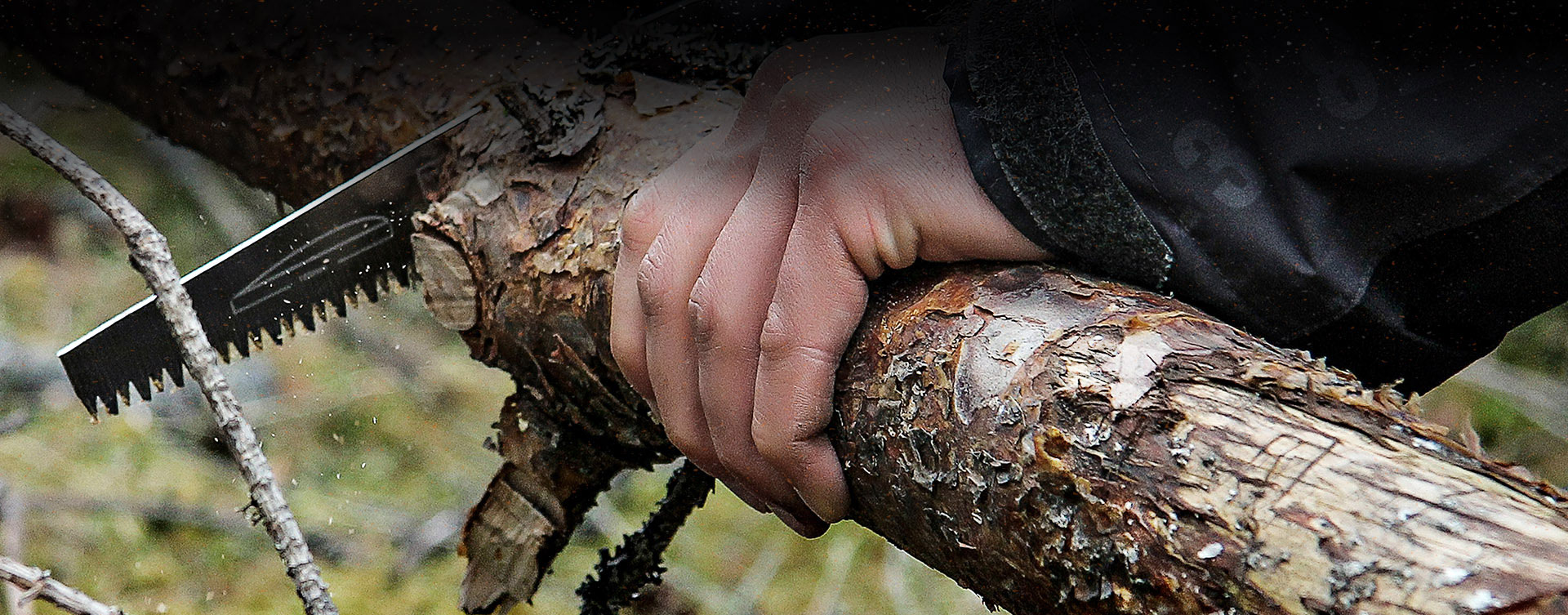
The Survival Triangle
How can you possibly speak about the individuals will to survive unless you yourself have been faced with a potential night out on the hill, getting lost in a whiteout blizzard or had to administer yourself for long periods in a hostile habitat? Without this first hand experience, one of the most useful tools for allowing you to visualize the dynamics of Survival is the Survival pyramid. This lists the three areas that are needed to surmount an emergency event;
Will to Survive – Is the basis for all survival situations, the individuals mental and physical attitude to their surroundings will be the ‘ make or break’ of them. Some people are born with a greater capacity than others, for some folk it is possible to train themselves by taking on increasingly harder challenges and tuning the body and mind. External forces can play a part to Surviving a scenario; be it Religion, the team or loved ones at home, these are factors to give the individual that little extra incentive to ‘dig deeper’. Interestingly I remember reading Heinrich Harrer’s “White Spider” about the first rope to ascend the North face of the Eiger, in which he comments;
“… allowing the mind to wander to the valley and loved ones in it is not conducive to a successful expedition, the mind must be occupied with the task in hand…”
Sometimes the will to Survive is the pure focus on the task at hand, complete immersion will be needed to ‘come out the other side’.
- Knowledge – Knowledge is power. Ignorance of facts leads to fear, and an education in wilderness skills will hold the trainee in good stead for future experiences;
“Make your pack lighter by filling your head with knowledge”
Nature and what is around you has all that you need, its the implementation of these resources that is important. Everybody knows that you can make fire by rubbing two sticks together, or set out snares to catch food. But which types of wood and how old do they have to be to get an ember? How long does a snare have to be set out for to turn up a catch? Just ‘knowing’ something doesn’t mean you can affect it to work, but being knowledgeable often means you have put it to physical practice and allows you to tweak technique in the field depending on the circumstances.
- Kit – Kit is always at the top of the triangle. We rely on our knowledge and will to survive to allow us to teach and to surmount situations with the base minimum of equipment. However when out in a wilderness setting planning what you pack is hugely important, as is a good knowledge of the equipment or gear that you are taking . Relying too much on gear can be a hindrance especially what we are teaching is self sufficiency. This being said with a knife, metal mug and well prepped survival tin life can be comfortable.
As an individual and company delivering courses in Bushcraft and Survival I am often asked what is the difference between the two? A complex and much debated question.
I once heard my head instructor Pete Long describe the differences nicely to a group by saying;
“Survival is essentially finding yourself in a situation and trying to get yourself out of it, Bushcraft is about purposefully putting yourself in a situation and trying to stay there.”
In my view the two interplay and combine in many ways, the Survivalist will have much the same knowledge as the Bushcrafter but the desired outcome is different. The desire to be as self sufficient as possible and work with the base minimum of gear is present in both sides. The other difference is the Survivalists ability to freely use modern day materials and manipulate them to serve his needs. To give an example is the use and production of man-made tinders to light a fire; The Hudson bay trappers would take a tin with them when they were going off to trap animals for their fur, this tin they would pierce a hole on the top and use to make char from natural materials such as cotton, punk wood or a piece of natural material that they had. Indigenous peoples might favour Amadou which is found in the horse shoe fungis, thin slices are cut, put into boiling water and ash and boiled up and dried. The outcome is similar, the difference is obviously the man-made tin which would not be available to indigenous peoples.
One thing is certain, there is no substitute for hard earned experience, like the base of the survival triangle it is the building block on which we keep adding, leaving us more safer, rounded, happier and contented individuals.
Neil Foote.
Keep up to date with our blog for more offers on our Bushcraft and Survival Courses in Scotland and North East England – We feature discounts and competitions regularly.











 Message an Instructor now
Message an Instructor now